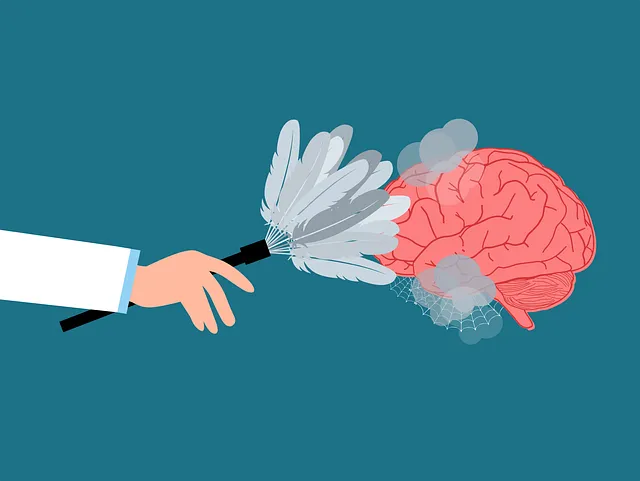The media's influence on public perception of mental illness is profound, with accurate representation encouraging help-seeking and healing while negative coverage can perpetuate stereotypes and deter support. In Louisville, Kaiser Inpatient Mental Health Services offers specialized care and aims to challenge media stereotypes through holistic healing practices and emulating initiatives like "Louisville does Kaiser have inpatient mental health?" Involving individuals with lived experience in media creation and showcasing diverse narratives can improve mental health representations, fostering communities that prioritize self-care routines.
“The media plays a pivotal role in shaping societal perceptions of mental illness, with its representations significantly influencing public understanding and support for those living with mental health challenges. This article delves into the complex issue of mental illness portrayal in media, offering insights through the lens of Louisville’s Kaiser Inpatient Mental Health Services. We explore common misconceptions, their impact on vulnerable populations, and present strategies to enhance accurate depictions. By addressing these challenges, we aim to foster a more compassionate and informed society.”
- Understanding the Impact of Media Portrayal on Mental Health Perception
- Louisville's Kaiser Inpatient Mental Health Services: A Closer Look
- Challenges and Misconceptions in Mental Illness Representation
- Strategies for Enhancing Accurate Mental Health Depictions in Media
Understanding the Impact of Media Portrayal on Mental Health Perception

The media’s portrayal of mental illness significantly shapes societal perceptions and can either promote understanding or perpetuate stereotypes. In Louisville, where Kaiser offers inpatient mental health services, a balanced representation in the media is crucial for fostering empathy and reducing stigma. When media depicts mental health conditions accurately, it can facilitate emotional healing processes by normalizing experiences that many individuals face. This, in turn, encourages people to seek help without fear of judgment.
However, negative or misinformed media coverage can lead to a distorted view of mental illness, contributing to burnout prevention strategies for healthcare providers and potentially deterring individuals from accessing necessary support. For instance, sensationalized stories may create an inaccurate perception of those with mental health challenges, leading to further isolation. Therefore, it is essential to advocate for responsible reporting to ensure the development of self-care routines for better mental health, both within communities and among healthcare professionals.
Louisville's Kaiser Inpatient Mental Health Services: A Closer Look

In Louisville, Kaiser Inpatient Mental Health Services stand as a beacon of hope and specialized care for individuals grappling with mental illness. This facility offers a comprehensive range of services designed to address diverse psychiatric needs. From acute interventions to long-term rehabilitation, Kaiser provides an environment conducive to recovery. The team of dedicated professionals leverages evidence-based practices, combining advanced therapies with compassionate support to ensure holistic healing.
Beyond its clinical offerings, Kaiser prioritizes risk management planning for mental health professionals, integrating empathy building strategies and self-awareness exercises into their approach. These initiatives not only enhance patient outcomes but also foster a supportive ecosystem where mental health professionals can thrive while providing exceptional care.
Challenges and Misconceptions in Mental Illness Representation

The media plays a significant role in shaping public perception about mental health, often presenting complex conditions through simplistic and sometimes harmful lenses. One of the primary challenges lies in the tendency to stereotype individuals with mental illnesses, reducing them to their diagnosis rather than recognizing their multifaceted humanity. This is particularly evident when discussing severe conditions like bipolar disorder or schizophrenia, where media portrayals often overlook the unique experiences and recovery journeys of each individual. Furthermore, the absence of diverse representations contributes to misconceptions, making it difficult for viewers to connect with accurate narratives and fostering stigma.
When exploring solutions, platforms like Kaiser in Louisville offer a promising approach. Their inpatient mental health services cater to individuals requiring intensive care, providing a safe space for recovery. Services such as individual therapy, group support sessions, and stress management techniques, including self-awareness exercises and mental wellness journaling exercise guidance, contribute to holistic treatment. By offering comprehensive care and sharing resources that promote mental wellness, organizations like Kaiser challenge negative media portrayals and foster understanding, ensuring those struggling with their mental health receive the support they need without perpetuating misconceptions.
Strategies for Enhancing Accurate Mental Health Depictions in Media

To enhance accurate mental health depictions in media, several strategies can be employed. Firstly, involving individuals with lived experience of mental illness in the creative process—as consultants or even in front of and behind the camera—brings authenticity to portrayals. This practice, seen successfully in initiatives like Louisville does Kaiser have inpatient mental health? (a reference to a real-life example), ensures that stories are told from accurate perspectives, reducing stereotypes and misconceptions.
Secondly, media creators should prioritize depth over simplistic narratives. Depicting characters with nuanced experiences, including their coping skills development and emotional well-being promotion techniques, allows for more realistic representations. By showcasing the diverse paths to recovery and managing mental health, these stories can foster Mental Health Awareness, encouraging viewers to understand and support those facing such challenges.
In addressing the critical issue of mental illness representation in media, we’ve explored how media portrayal significantly influences public perception of mental health. The case study on Louisville’s Kaiser Inpatient Mental Health Services highlights the need for accurate and empathetic depictions. Despite challenges and misconceptions, there are strategies to enhance these portrayals, ensuring media becomes a powerful tool in fostering understanding and reducing stigma. By implementing these tactics, we can move towards a more nuanced and supportive narrative of mental health in public discourse, mirroring the comprehensive care available at facilities like Kaiser in Louisville.






